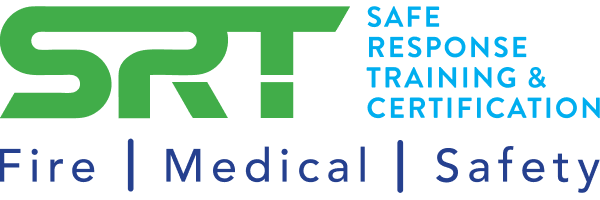PHECC Emergency First Responder Course
Overview
This 5-day course is designed for persons seeking training in the assessment and care management of patients in the pre-hospital environment for a range of common medical and trauma emergencies. Course participants must be committed to the process of continuous competence and be able to maintain skill level in both CFR and EFR at defined time intervals. This course is given as a blended course some days will be online and some days on site.
An Emergency First Responder (EFR) is a person trained in Cardiac First Response that possesses additional knowledge and skills in the assessment and management of patients in a pre‐hospital environment. An Emergency First Responder may be part of the emergency medical services, a healthcare practitioner or a member of the public. The first responder course equips the student to be able to deal with a variety of trauma and medical conditions
Who's it for
Typically people who undertake the PHECC Emergency First Response (EFR) course are from a wide and varied background. This course is well suited for those looking to expand on the knowledge and skills of other courses such as basic first aid and occupational first aid. It may also useful for those who need a foundation in medical training who will respond to incidents infrequently. This could include members of a retained fire service or members of an emergency response team in a manufacturing or production plant.
The EFR course offers a comprehensive overview and grounding of what's expected from emergency medical personnel. Previous students who completed this course include: Retained Fire Fighters, Community First Responders, Emergency Response Team Members, Coaches from full contact sports, Rugby Coaches and Staff & people with an interest in emergency medical services who possibly wish to progress their training at a further stage to Emergency Medical Technician (EMT) or above.
Requirements
Students must have successfully completed a PHECC Cardiac First Response community course. Students must present the CFR certificate at the start of the course. This can be a standalone CFR certificate or an in-date Occupational First Aid Certificate. Students should be physically fit enough to carry out chest compression on a manikin while kneeling and a range of other pre-hospital emergency techniques.
Modules
-
Cardiac First Response - Community Level
-
Primary survey
-
Secondary survey
-
Anatomy and Physiology
-
Continuum of pre‐hospital emergency care
-
Principles of lifting and moving
-
Pharmacology
-
Airway and ventilation
-
Respiratory emergencies
-
Cardiovascular emergencies
-
General medical emergencies
-
Bleeding, shock and soft tissue injuries
-
Musculoskeletal, head and spinal injuries
-
Paediatrics
-
Childbirth
-
Information management
-
Communications
-
The wellbeing of the EFR
-
Infection prevention and control
-
Medico‐legal EFR
Delivery
The course is facilitated by an instructor /tutor who will use a variety of techniques such as lectures, demonstrations, practical's and group discussions amongst others, to guide you through the course. The course is delivered through English.
Duration
The course is 5 Days (40 hours) excluding the Cardiac First Response section. The course is delivered over a number of days some of the course is also done via our online portal as necessary. Regardless of course breakdown the minimum duration will be observed.
Assessment
The assessment for the course will be split between theory examinations and practical skills demonstrations or OSCE's. The theory element is assessed using a multiple-choice examination (MCQ) the practical element is assessed using skills sheets and scenario based practical assessments.
Certification
Upon successful completion of this course students will receive a joint PHECC and Medicore Medical Services Emergency First Response certificate. This cert will be valid for 3 years. In order to maintain their EFR certification, students should independently maintain their CFR certification.
Renewal
In order to maintain you qualification after your three-year certification period you will be required to undertake a refresher course.
